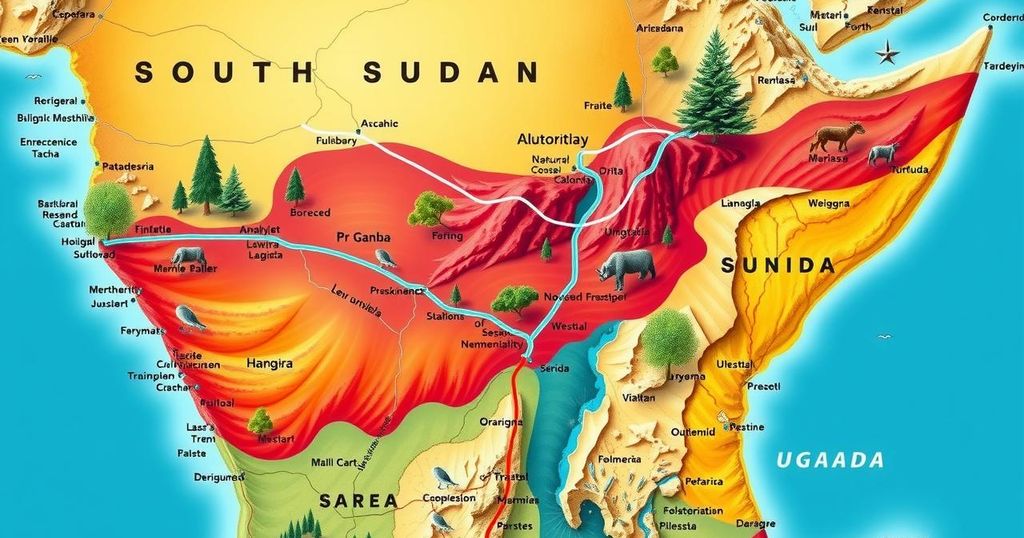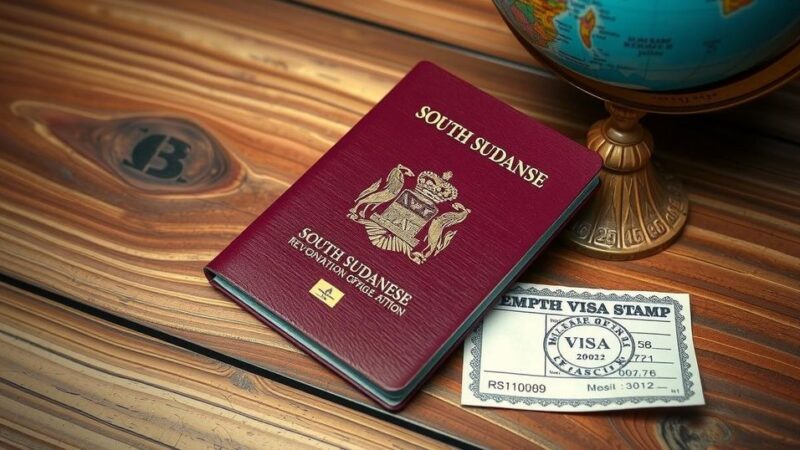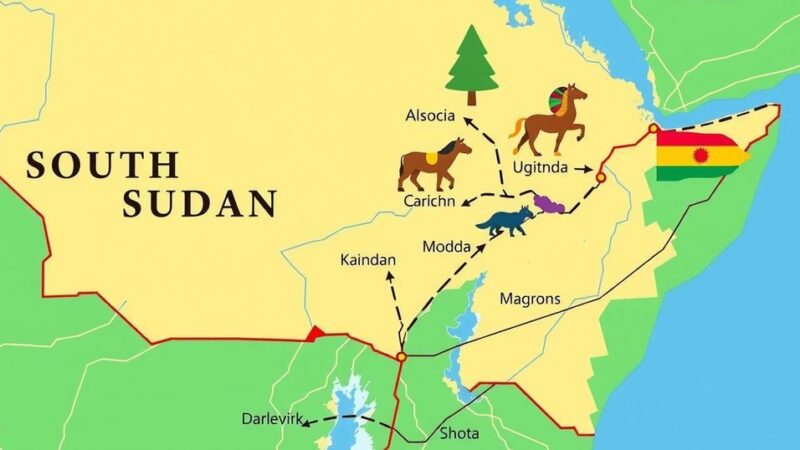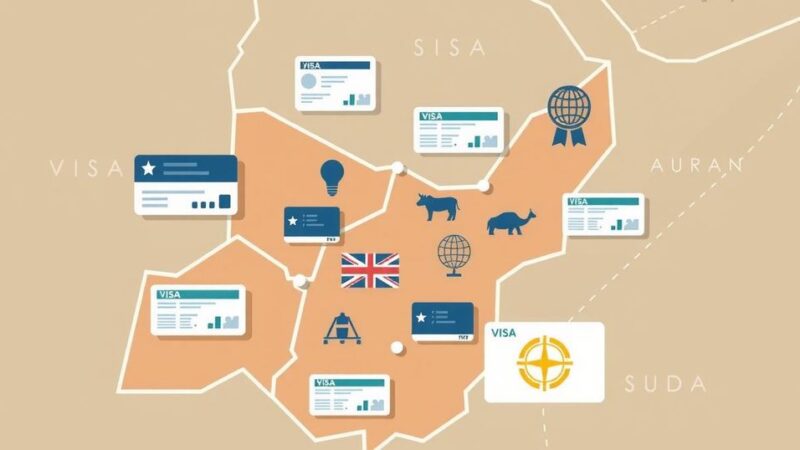South Sudan is facing critical diplomatic challenges as it navigates relations with Uganda, influenced by shared history and conflicting agendas. Uganda has historically supported South Sudan, but military interventions have complicated ties, amplifying internal conflicts. To ensure its sovereignty and stability, South Sudan must develop a balanced foreign policy and strengthen relationships with other regional actors.
South Sudan is currently at a critical point in its bilateral relations with Uganda, influenced by historical connections and differing political agendas. These interactions are crucial not only for national stability but also for economic development in the region. Uganda has played a substantial role in supporting South Sudan during its path to independence while simultaneously pursuing its own strategic interests.
Throughout South Sudan’s struggle for independence, Uganda emerged as a pivotal ally, contributing military support against the Sudanese government. However, this assistance was part of broader regional tensions involving the Lord’s Resistance Army, thus complicating Uganda’s intentions. The dual nature of Uganda’s support showcases a layered relationship characterized by both cooperation and regional political maneuvering.
The interplay between competition and collaboration has continued post-independence. South Sudan has become a market for Ugandan goods, while Uganda has facilitated trade routes that are essential for landlocked South Sudan. Despite this, military involvement by Uganda, particularly during the South Sudanese civil war, has created mistrust and complicated interactions between the two nations, one example being the Ugandan Defense Forces’ support for opposing political factions.
The aftermath of the civil conflict has left South Sudan grappling with fragile governance and a dire humanitarian situation. Current relations between South Sudan and Uganda encompass not only historical friendships but also significant geopolitical ramifications due to mutual involvement in regional conflicts. This has led to accusations against Uganda of preferential treatment toward President Kiir’s government, deepening divisions among rival groups within South Sudan.
Competition over resource control is evident between South Sudan and Uganda, particularly in the energy sector where both nations seek to benefit from existing oil reserves. Uganda’s investment in South Sudan’s oil infrastructure has raised concerns and highlights the need for cooperative ventures that prioritize shared interests while mitigating conflict.
Furthermore, South Sudan’s strategic position in the Horn of Africa presents opportunities for external partnerships, attracting interest from global powers eager to tap into the region’s resources. As Uganda maintains its influence in the area, its relationship with South Sudan remains crucial for facilitating sustained regional stability.
As South Sudan navigates its diplomatic relations, adopting a balanced foreign policy while engaging in regional cooperation will be pivotal. Strengthening ties with neighboring countries like Ethiopia and Kenya will diversify partnerships, reducing overreliance on Uganda. A focus on effective governance and inclusive dialogue is essential for enhancing South Sudan’s sovereignty and mitigating undue external influence.
In summary, South Sudan must carefully manage its complex relationship with Uganda to foster stability and prevent external interference. The nations share a history of cooperation that is now intertwined with regional politics and competition. By adopting a strategic diplomatic approach that diversifies partnerships and addresses internal governance issues, South Sudan can better safeguard its sovereignty and create a foundation for peaceful development amidst regional upheaval.
Original Source: www.radiotamazuj.org






